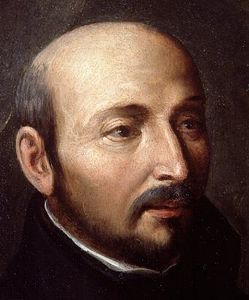A Quote by William Makepeace Thackeray
Which of us is happy in this world? Which of us has his desire? or, having it, is satisfied?
Related Quotes
We do not rest satisfied with the present.... So imprudent we are that we wander in the times which are not ours and do not thinkof the only one which belongs to us; and so idle are we that we dream of those times which are no more and thoughtlessly overlook that which alone exists. For the present is generally painful to us.
I find that many men and women are troubled by the thought that they are too small and inconsequential in the scheme of things. But that is not our real trouble - we are actually too big and too complex, for God made us in His image and we are too big to be satisfied with what the world offers us!.. Man is bored, because he is too big to be happy with that which sin is giving him. God has made him too great, his potential is too mighty.
It is not given to us to grasp the truth, which is identical with the divine, directly. We perceive it only in reflection, in example and symbol, in singular and related appearances. It meets us as a kind of life which is incomprehensible to us, and yet we cannot free ourselves from the desire to comprehend it.
If [Pope's Francis] media-generated popularity, fragile as that may turn out to be when the world discovers that the pope is really a Catholic, opens windows of possibility for explaining that divine mercy leads us to the truths God revealed to us (and inscribed into the world and into us), then his reanimation of the papacy will advance the "Church in permanent mission" for which he called in Evangelii Gaudium, which is the grand strategy document of his pontificate.
It is not merely our own desire but the desire of Christ in His Spirit that drives us to grow in love. Those who seldom or never feel in their hearts the desire for the love of God and other men, and who do not thirst for the pure waters of desire which are poured out in us by the strong, living God, are usually those who have drunk from other rivers or have dug for themselves broken cisterns.
[T]ruly to escape Hegel involves an exact appreciation of the price we have to pay to detach ourselves from him. It assumes that we are aware of the extent to which Hegel, insidiously perhaps, is close to us; it implies a knowledge, in that which permits us to think against Hegel, of that which remains Hegelian. We have to determine the extent to which our anti-Hegelianism is possibly one of his tricks directed against us, at the end of which he stands, motionless, waiting for us.
I have a sense that God is unfair and preferentially punishes his weak, his dumb, his fat, his lazy. I believe he takes more pleasure in his perfect creatures, and cheers them on like a brainless dad as they run roughshod over the rest of us. He gives us a need for love, and no way to get any. He gives us a desire to be liked, and personal attributes that make us utterly unlikable. Having placed his flawed and needy children in a world of exacting specifications, he deducts the difference between what we have and what we need from our hearts and our self-esteem and our mental health.





































